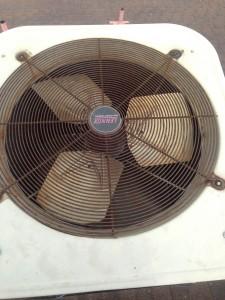Clark Heating and Cooling blog
Monsoon Season and Your A/C
 The Valley has experienced some huge rainstorms this monsoon season! The rain is much needed here in Arizona, and also provides welcome relief from the summer heat. However, the monsoon storms can also be destructive, as we have seen recently. What does this mean for your air conditioning system? Depending on the strength of the storm, the monsoon definitely can have an effect on your air conditioner’s operation.
The Valley has experienced some huge rainstorms this monsoon season! The rain is much needed here in Arizona, and also provides welcome relief from the summer heat. However, the monsoon storms can also be destructive, as we have seen recently. What does this mean for your air conditioning system? Depending on the strength of the storm, the monsoon definitely can have an effect on your air conditioner’s operation.
Maintaining Your A/C During Monsoon Season
Here are a few tips to help maintain your air conditioner during and after a monsoon storm:
1) If the storm is very severe - pouring rain to the point where you can barely see combined with strong wind gusts blowing the rain sideways - turn off your air conditioner. There are several reasons for taking this precaution. First, if water gets into the electrical components, they could be damaged or burn out since the system is running. Second, if debris is being blown around in the air and the system is running, there is a chance that some can get caught up inside the unit, damaging the fan blade inside by preventing it from spinning. This leads to damages throughout the entire A/C system. Third, if your air conditioner is located on the ground outside your home, branches and leaves may get blown up against the coils and restrict air flow, causing the system to work harder than necessary. As we mentioned earlier, one of the keys to a long A/C life is to prevent unnecessary strain on the unit.
2) After the storm has finally passed, it is safe to turn the air conditioning system back on. Fortunately, the temperature drops quite a few degrees during large monsoon storms, so your home shouldn't become too hot!
3) Visually check your air conditioning unit once it’s daylight. Inspect the unit to be sure it is clear of any obstructions, like tree branches, palm fronds, or grass bundles, and make sure it sounds like it is running smoothly.
An item to note: Some air conditioning units are located under the eaves of the home, and if gutters are not in place, water can pour directly into the air conditioner. This will ruin the electrical component of the A/C unit, especially if the storm delivers more than a couple inches of rain in a short period of time.
How did your house survive the most recent monsoon? Do you have any concerns about your air conditioner? We would love to stop by and make sure everything is functioning properly, so call us today if you have any questions!
When you subscribe to the blog, we will send you an e-mail when there are new updates on the site so you wouldn't miss them.


